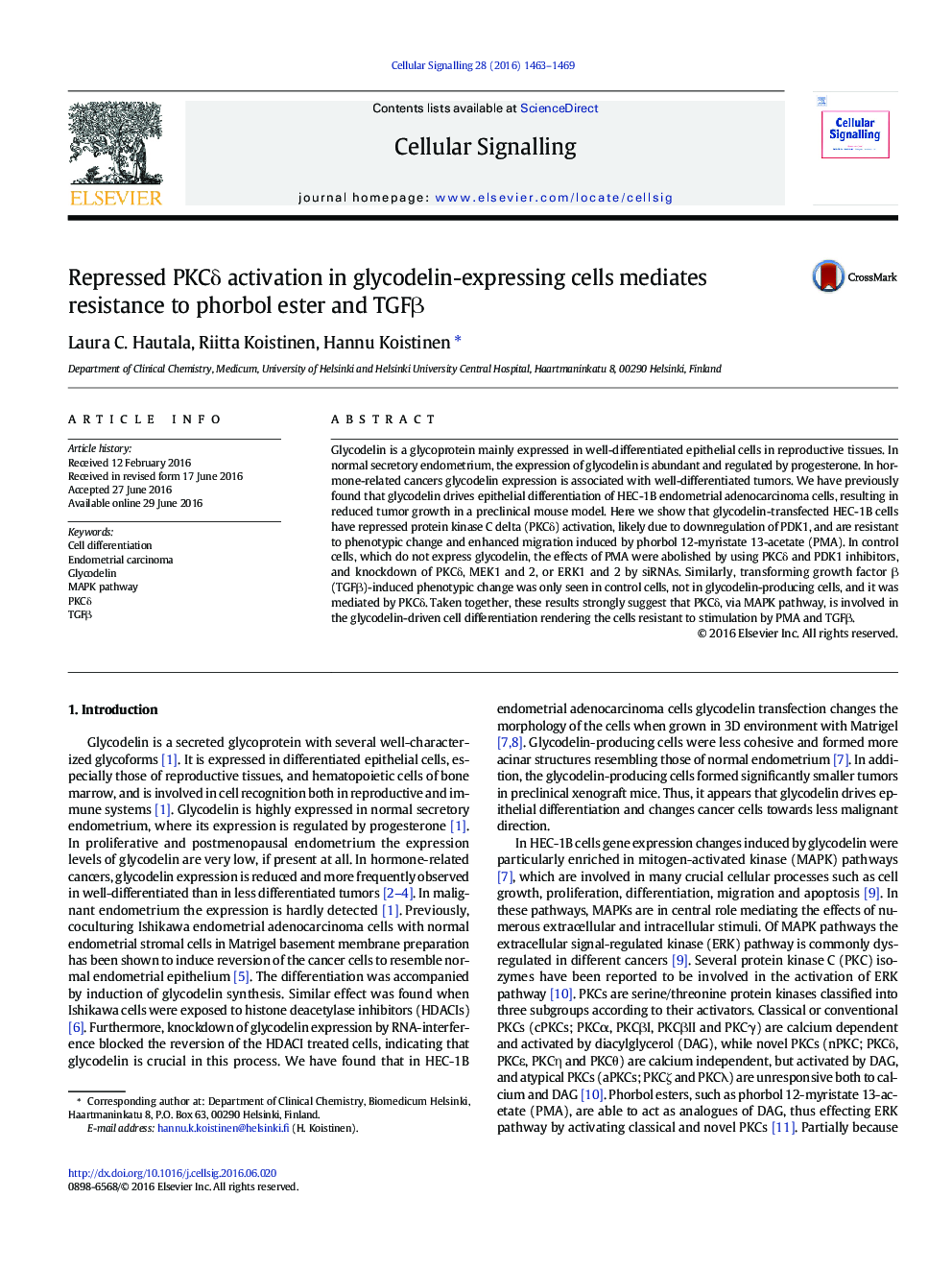| Article ID | Journal | Published Year | Pages | File Type |
|---|---|---|---|---|
| 10814941 | Cellular Signalling | 2016 | 7 Pages |
Abstract
Glycodelin is a glycoprotein mainly expressed in well-differentiated epithelial cells in reproductive tissues. In normal secretory endometrium, the expression of glycodelin is abundant and regulated by progesterone. In hormone-related cancers glycodelin expression is associated with well-differentiated tumors. We have previously found that glycodelin drives epithelial differentiation of HEC-1B endometrial adenocarcinoma cells, resulting in reduced tumor growth in a preclinical mouse model. Here we show that glycodelin-transfected HEC-1B cells have repressed protein kinase C delta (PKCδ) activation, likely due to downregulation of PDK1, and are resistant to phenotypic change and enhanced migration induced by phorbol 12-myristate 13-acetate (PMA). In control cells, which do not express glycodelin, the effects of PMA were abolished by using PKCδ and PDK1 inhibitors, and knockdown of PKCδ, MEK1 and 2, or ERK1 and 2 by siRNAs. Similarly, transforming growth factor β (TGFβ)-induced phenotypic change was only seen in control cells, not in glycodelin-producing cells, and it was mediated by PKCδ. Taken together, these results strongly suggest that PKCδ, via MAPK pathway, is involved in the glycodelin-driven cell differentiation rendering the cells resistant to stimulation by PMA and TGFβ.
Related Topics
Life Sciences
Biochemistry, Genetics and Molecular Biology
Biochemistry
Authors
Laura C. Hautala, Riitta Koistinen, Hannu Koistinen,
